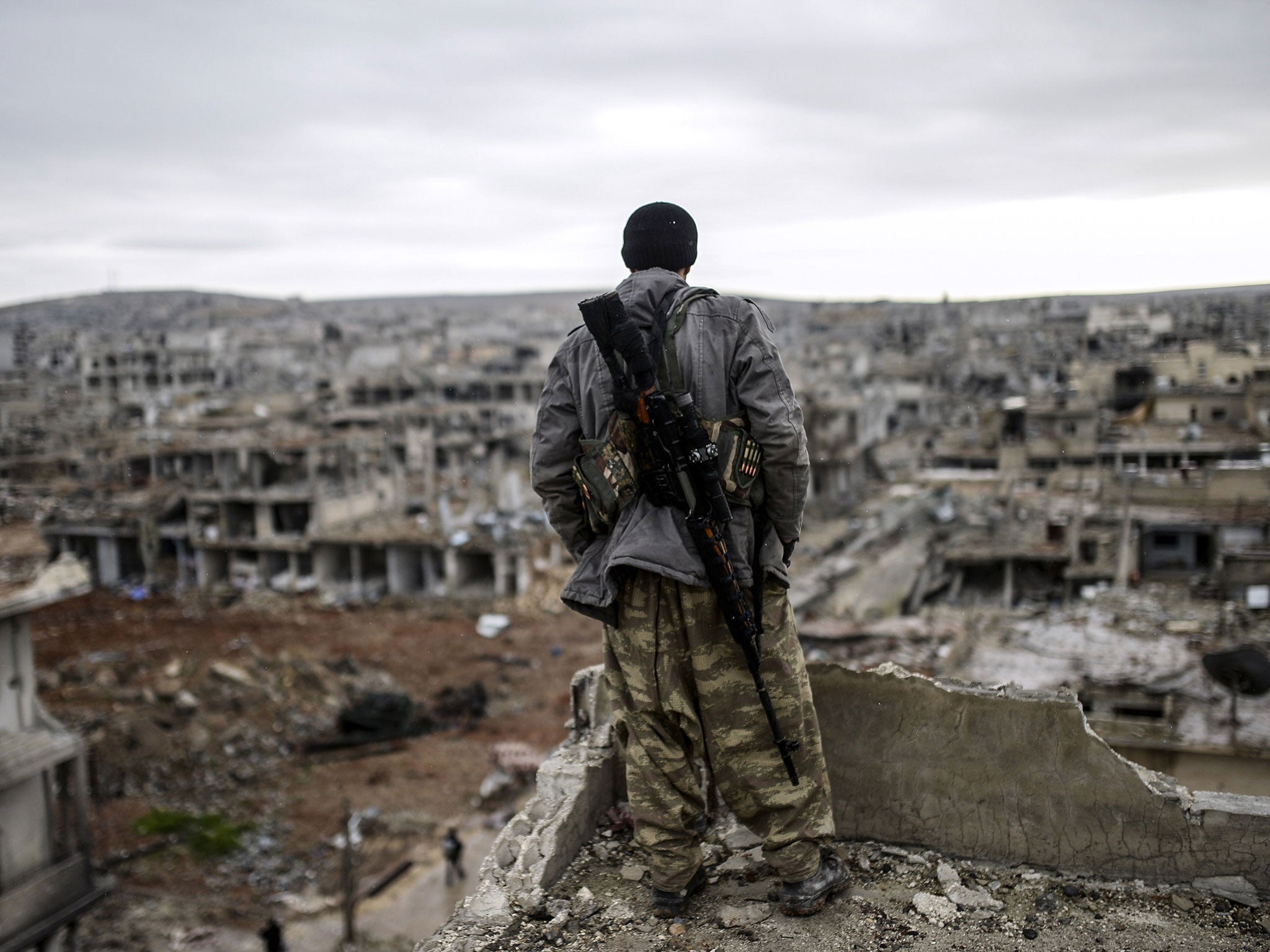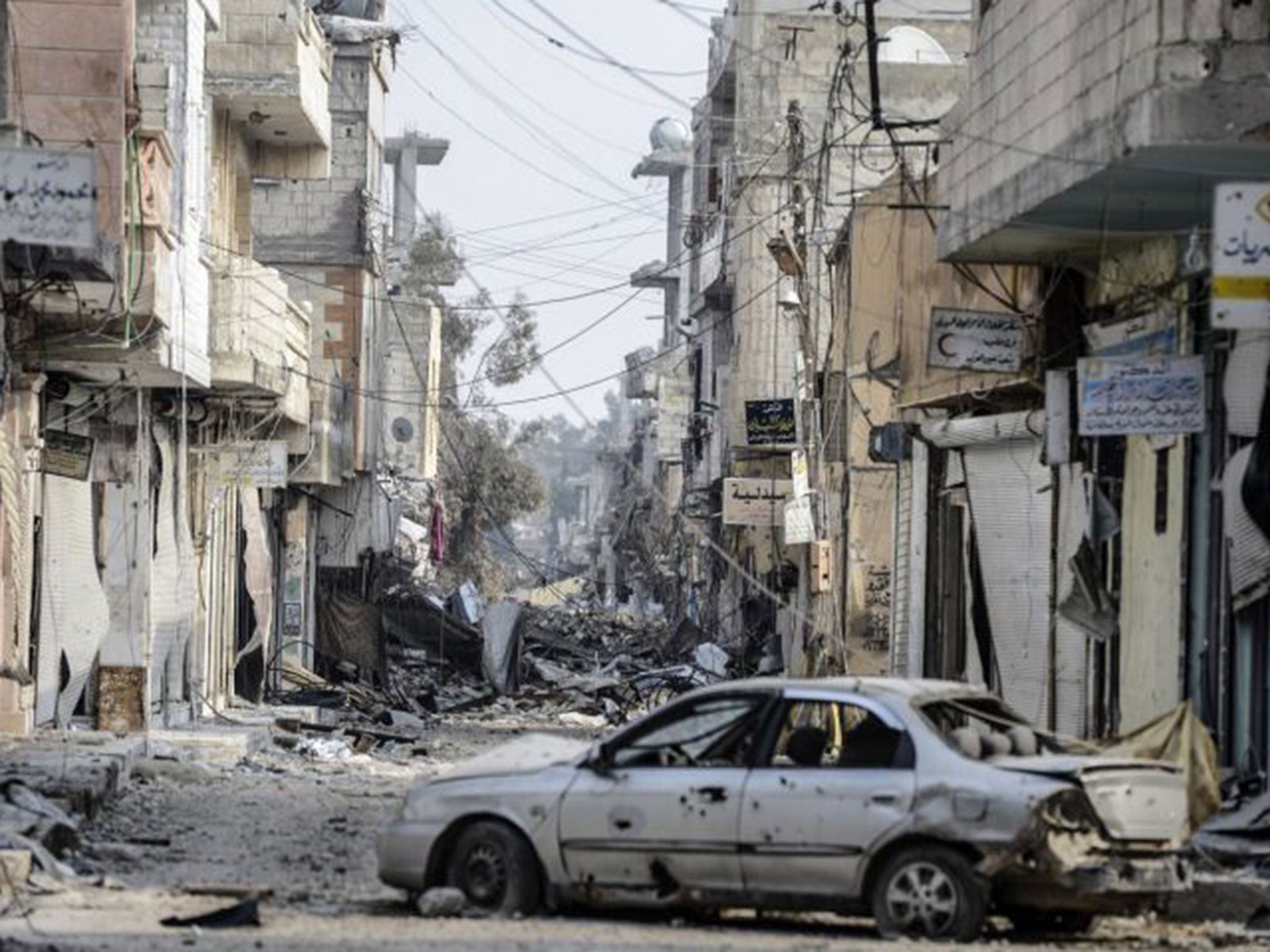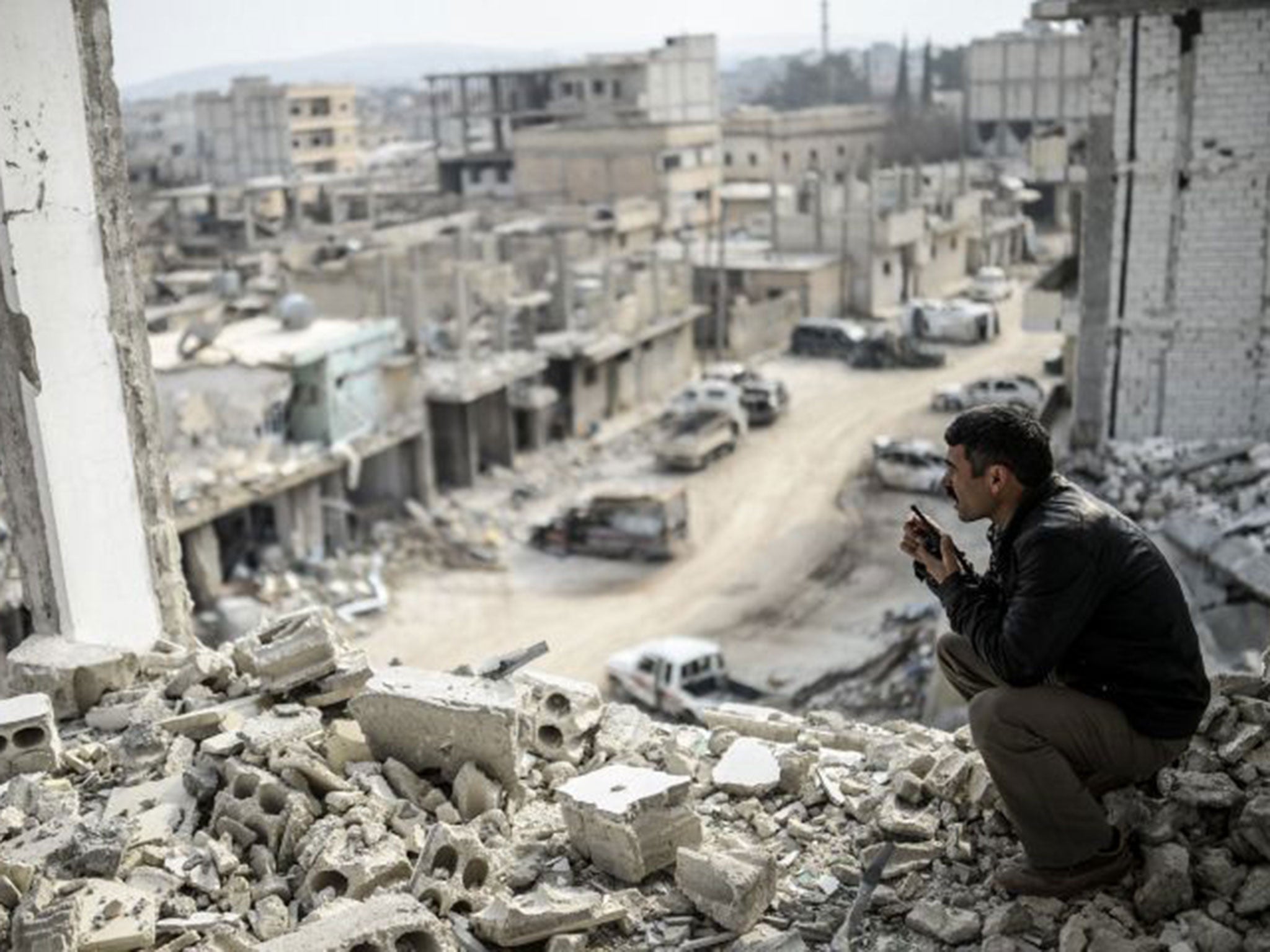Turkey-Kurdish conflict: Meeting the victims of a new bombing campaign over Iraq
Cathy Otten reports from Irbil in Iraq on the victims of Turkey’s air strikes

Your support helps us to tell the story
This election is still a dead heat, according to most polls. In a fight with such wafer-thin margins, we need reporters on the ground talking to the people Trump and Harris are courting. Your support allows us to keep sending journalists to the story.
The Independent is trusted by 27 million Americans from across the entire political spectrum every month. Unlike many other quality news outlets, we choose not to lock you out of our reporting and analysis with paywalls. But quality journalism must still be paid for.
Help us keep bring these critical stories to light. Your support makes all the difference.
Ahmed was watering his crop of cucumbers and tomatoes in the mountain village of Bolla when he heard the distant rumble of warplanes.
A government employee working in the nearby Iraqi Kurdish city of Ranya, the 62-year-old had travelled to his ancestral village to tend his crops just after dawn.
But the mountains are also home to camps for the Kurdistan Workers’ Party (PKK) which waged a 30-year long war with Turkey for rights and self-rule before a ceasefire was declared two years ago.
At 6am the fighter jets began attacking a few miles away, “I saw the smoke rising,” he told The Independent. “Another two warplanes came and hit the meadows around one mile north of the village. They were getting closer to the ground and were making a terrifying sound. They fired two or three bombs each,” he said.
Last week, Turkey began attacks against Isis in Syria, which the PKK accuses them of aiding, but also launched strikes against the PKK, effectively ending the fragile peace process.

The PKK, labelled a terrorist organisation by the US, is also a key player in the fight against Isis in northern Iraq, alongside its sister group the People’s Protection Units (YPG) in northern Syria.
A spokesman for the PKK, Zagros Hiwa, told The Independent that they are committed to finding democratic solutions, but “we have to defend ourselves against [the Turkish President Recep Tayyip] Erdogan’s attacks”.
He added: “Erdogan has unilaterally and practically ended the peace process with such widespread air attacks against our positions”.
Mr Hiwa estimates that Turkey has launched 500 attacks against the PKK in the last seven days since the fields surrounding Ahmed’s village were attacked. Mr Hiwa describes the raids as an effort to weaken the PKK under the cover of fighting Isis.

He says that one PKK fighter was killed whilst preparing to deploy to the front lines fighting with Isis. Nine Kurdish militants have so far been killed in the raids, and five civilians have been wounded, Mr Hiwa said. On a visit to Qandil at the end of last year, The Independent saw how PKK militants concealed themselves amongst trees and rocks to avoid air attacks.
The Turkish government says it will continue to clamp down on both Isis and the PKK. After a suicide bomb blast in the Turkish town of Suruc on the Syrian border last week thought to be carried out by Isis, the military arm of the PKK claimed responsibility for the killing of two Turkish policemen in revenge, further stoking tensions. Mr Hiwa said that those who carried out the police killings acted on their own initiative and not on orders.
On 30 July Reuters reported that three Turkish soldiers in Sirnak in the south east of the country had been killed by PKK fighters, according to a military statement. Meanwhile the Iraqi Prime Minister Haider al-Abadi condemned Turkish strikes on Iraqi territory, stating that Iraq’s council of ministers “considers Turkish air strikes on Iraqi territory a dangerous escalation and a violation of Iraq’s sovereignty”.
Abubakr, 23, also from Bolla, said that on 31 July warplanes could be seen in the sky above the town. For Ahmed’s family the renewed violence brings back sadness as well as fear. His son Muhammed, 29, says that in 2011 seven of his relatives were killed in Turkish air strikes, including a two-month-old infant, as they travelled from the village down the mountain to Ranya to sell their crop of vegetables. Ahmed is not sure why the war has restarted. “We are farmers and don’t know about politics,” he said. “My heart is with my village and I cannot live without it. I have my childhood memories there. I have my own land, yard, water and trees – but we can’t live there because it is not safe.”
On 25 July, Ahmed stopped to have lunch in the house of one of his relatives. At 1pm he heard the jets again for the second time that day. He recalled: “The children were screaming and the women were praying. I said, ‘Oh God, protect our children and us’.”
Subscribe to Independent Premium to bookmark this article
Want to bookmark your favourite articles and stories to read or reference later? Start your Independent Premium subscription today.
Join our commenting forum
Join thought-provoking conversations, follow other Independent readers and see their replies
Comments